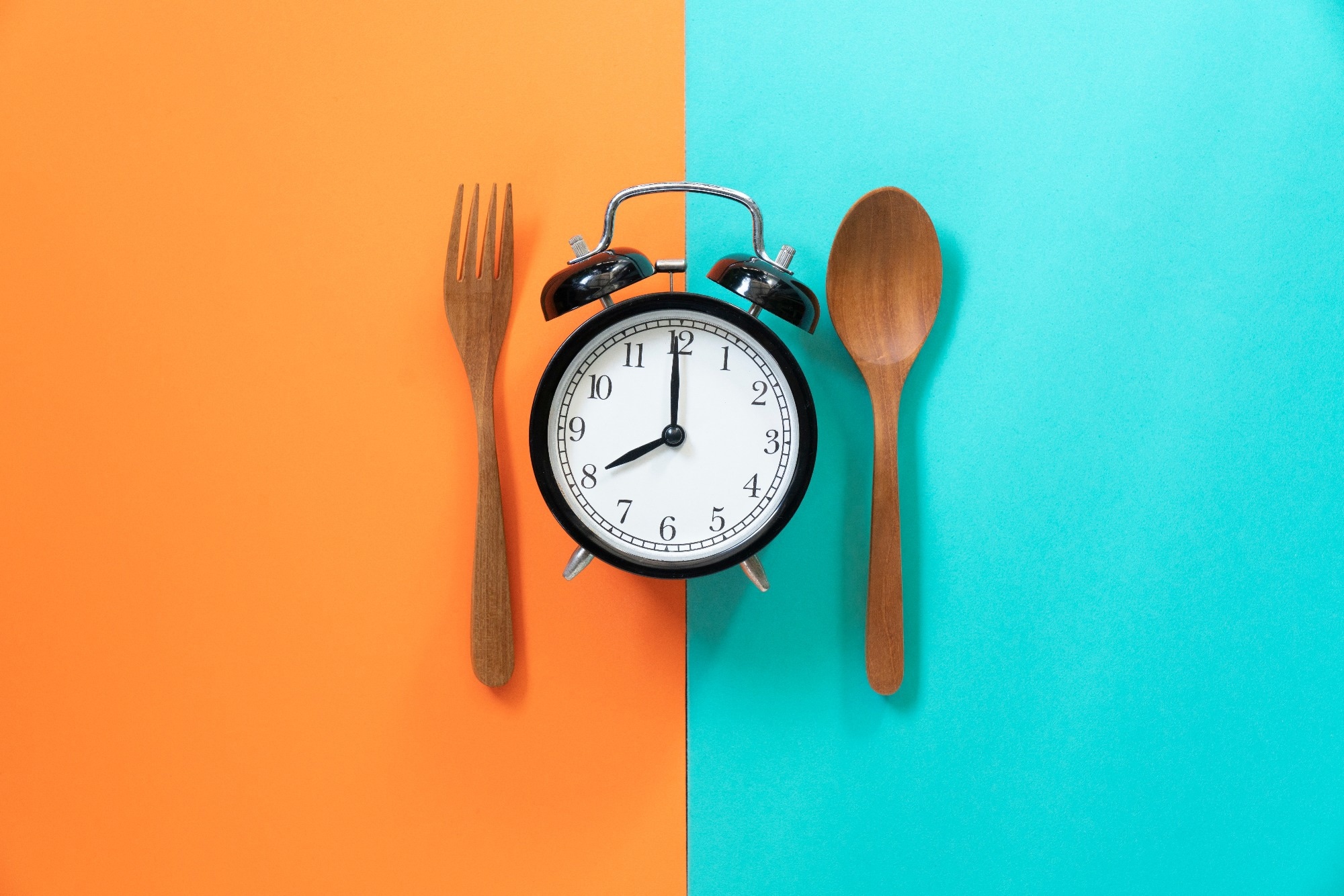Research reveals how adjusting breakfast timing and post-meal walks can transform glycemic control in type 2 diabetes, offering an easy lifestyle tweak for better health.
 Study: Modifying the timing of breakfast improves postprandial glycaemia in people with type 2 diabetes: A randomised controlled trial. Image Credit: Chutima Chaochaiya
Study: Modifying the timing of breakfast improves postprandial glycaemia in people with type 2 diabetes: A randomised controlled trial. Image Credit: Chutima Chaochaiya
In a recent study published in the journal Diabetes & Metabolic Syndrome: Clinical Research & Reviews, researchers investigated the combined effects of varying breakfast timings and 20-minute-long brisk after-breakfast walks on postprandial glycemia. They conducted a six-week-long randomized crossover controlled trial on 14 adults, of whom 11 adhered to the study requirements and were included in the final analysis. They found that breakfast consumed at 0930 hours (mid-morning) and 1200 hours (midday) reduced postprandial glycemia compared to 0700 hours (early morning).
The study further revealed that 20 minutes of walking after breakfast slightly reduced postprandial glycemia in patients eating at 0700h or 1200h (effect sizes: 0.35 and 0.37, respectively). However, it had no discernible benefit for those consuming their first daily meal at 0930h. Together, these findings highlight that altering breakfast timing may offer a non-invasive and practical strategy to help manage postprandial glycemia in T2D patients.
Background
Type 2 diabetes (T2D) is a chronic medical condition characterized by the body’s inability to adequately modulate insulin secretion, resulting in immune, circulatory, and nervous system disorders. The global prevalence of T2D has been rising at alarming rates, with reports estimating that one in every nine adults (643 million) will suffer from the condition by 2030.
Traditional T2D interventions involve adhering to lifestyle changes (e.g., increasing physical activity levels and improving dietary choices) to help improve glycemic management (altered blood glucose levels following food consumption) and insulin sensitivity. Recent research, however, suggests that the timing of these lifestyle interventions can complement the interventions in improving glycemic outcomes in T2D patients.
Altered breakfast timings, in particular, may substantially benefit morning hyperglycemia due to the meal’s influence on blood glucose excursions following breakfast, constituting the most considerable food-associated daily glycemic alterations. Unfortunately, rigorous evidence supporting timing-associated glycemic benefits remains sparse.
“The occurrence of peak cortisol levels (∼0800 h) and the ‘Dawn Phenomenon’ (i.e., elevated glucose levels upon waking) elicit heightened glucose levels in the early morning in people with T2D. Accordingly, interventions that reduce morning hyperglycemia are important for overall daily glucose management in persons with T2D.”
About the Study
The present study addressed these gaps in evidence by investigating the combined effects of varying breakfast timings and an acute, post-breakfast walking exercise on postprandial glycemia in adult T2D patients. The study adhered to a randomized crossover-controlled trial methodology conducted under free-living conditions and included 14 Australian participants aged 30-70 years with clinically diagnosed T2D (HbA1c ≥6.5 – <10%).
To improve study reliability and avoid potentially confounding observations, participants were excluded if they were presently consuming insulin supplements, sulphonylureas, or combinations of multiple hypoglycemic agents. Additionally, participants adhering to ketogenic diets, alternate-day fasting, or time-restricted eating patterns, or those engaging in physical activity surpassing Australian guidelines (>150 min/week), were also excluded.
The Eating Attitudes Test (EAT-26) was used to screen participants for baseline disordered eating risk, alongside assessments of beta cell function and body composition using blood tests and dual-energy X-ray absorptiometry (DXA), respectively. Participants were randomly assigned to ‘early’ (0700h), ‘mid’ (0930h), or ‘delayed’ (1200h) breakfast cohorts.
Participants were required to go for a brisk 20-minute walk 30-60 minutes after breakfast and recorded daily food consumption and sleep habits using the Research Food Diary App or handwritten logs. Continuous glucose monitors (CGMs) and activity monitors were used to track glucose and activity levels, while statistical analyses included the computation of incremental area under the curve (iAUC) metrics and linear mixed-effects models.
Study Findings
Of the 14 participants initially enrolled, one withdrew due to personal reasons, and two were excluded for non-adherence to study protocols. Records revealed that altering breakfast timings did not significantly change participants’ total daily energy intake or eating frequency.
Data analysis revealed that breakfast timing significantly altered iAUC, with ‘mid’ and ‘delayed’ breakfast cohorts depicting reductions of 57 mmol/L×2h and 41 mmol/L×2h, respectively, compared to ‘early’ breakfast eaters. Mid and delayed cohorts were statistically indistinguishable from one another.
Notably, 20 minutes of post-breakfast exercise was observed to slightly improve ‘early’ and ‘delayed’ iAUC outcomes but had no measurable effects on ‘mid’ breakfast consumers.
Conclusions
The present study provides the first robust evidence of the impacts of breakfast consumption timing on postprandial glycemia modulation in adults with T2D. Study findings revealed that delaying breakfast consumption to 0930h or 1200h could substantially improve glycemic outcomes compared with early (0700h) consumption. Surprisingly, 20 minutes of post-breakfast walking yielded only small improvements in glycemic outcomes at 0700h and 1200h but no benefits at 0930h.
“When this practice is adhered to over the long-term, it is likely to result in better glucose management, reducing risks associated with poor glycemic control, such as insulin resistance and increased cardiometabolic risks.”
Future research is warranted to confirm these findings, explore the role of physical activity on postprandial glycemia in larger populations, and assess the long-term feasibility of modifying breakfast timing and exercise in free-living conditions.
Journal reference:
- Bravo-Garcia, A. P., Reddy, A. J., Radford, B. E., Hawley, J. A., & Parr, E. B. (2024). Modifying the timing of breakfast improves postprandial glycaemia in people with type 2 diabetes: A randomised controlled trial. Diabetes & Metabolic Syndrome: Clinical Research & Reviews, 18(11-12), 103157. DOI:10.1016/j.dsx.2024.103157, https://www.sciencedirect.com/science/article/pii/S1871402124002182




